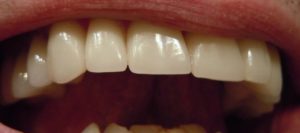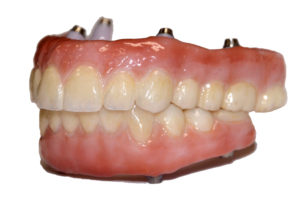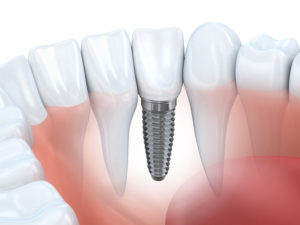 If you have a cavity or damaged tooth, your dentist may be able to treat it with a filling. In some cases, however, the only option is to use a dental crown to repair the tooth.
If you have a cavity or damaged tooth, your dentist may be able to treat it with a filling. In some cases, however, the only option is to use a dental crown to repair the tooth.
Dental crowns are ceramic or resin prosthetics that are designed to fit over your natural tooth. Once they are in place, they look like one of your own teeth. Typically, they are attached with a special dental adhesive that holds them in place. With dental implants, they are attached to a metal post that is embedded in your jawbone.
Crowns are usually reserved for situations where teeth are severely damaged, either as a result of trauma or decay. Since the whole tooth is covered by the crown, they provide a high degree of protection.
Dental crowns are used for treating a number of conditions, including the following:
- Teeth That Are Fractured Or Broken
If an accident occurs, teeth can break or fracture. Injuries like these leave the tooth prone to infection and decay. Patients with broken teeth may have difficulty eating or chewing their food. A dental crown can be used to restore severely damaged teeth, helping them function like they should again. - Treating Previous Dental Restorations That Have Come Loose Or Fallen Out
Most dental work is extremely durable, meaning that it will last a long time. Eventually, however, fillings, crowns, and other dental restorations will wear out. Depending on the situation, they might come loose, break, or fall out of the patient’s mouth. During a dental appointment, the dentist evaluates the tooth to determine whether a new crown is required to replace the damaged dental work. - Repairing Severe Decay
Dental fillings are the most common treatment for cavities or dental decay. In situations where the decay is extremely severe, however, a dental crown may be required to repair the damage. If the structure of the tooth has been significantly affected by the decay, a crown is usually a better treatment option than a filling since it provides extra protection and strengthens the tooth.
If you think that you need a dental crown, set up an appointment today here at Dentistry on Broadway. Our friendly staff members will be glad to help you.




 Missing teeth is something that impacts a lot of people. Not only can it negatively impact your speech and confidence, but it can negatively impact other areas in your life including your ability to chew and digest food properly.
Missing teeth is something that impacts a lot of people. Not only can it negatively impact your speech and confidence, but it can negatively impact other areas in your life including your ability to chew and digest food properly. If you have lots of tooth decay that is the result of cavities, then your dentist might recommend that your teeth have a sealant put on them. A dental sealant refers to a type of coating made from a plastic material that is put on your teeth.
If you have lots of tooth decay that is the result of cavities, then your dentist might recommend that your teeth have a sealant put on them. A dental sealant refers to a type of coating made from a plastic material that is put on your teeth. Besides depriving you of your smile, living with missing teeth also has health effects. As such, replacing missing teeth doesn’t serve the aesthetics purpose alone – it does so much more, including boosting your self-esteem.
Besides depriving you of your smile, living with missing teeth also has health effects. As such, replacing missing teeth doesn’t serve the aesthetics purpose alone – it does so much more, including boosting your self-esteem. In recent years, many people are taking the holistic approach when it comes to managing their health. It should not be surprising that this extends to their dental care as well. There are many providers who offer this type of services, but many people have some reservations about forgoing a traditional dental office. Here are a few benefits you can look forward to if you go to a holistic provider.
In recent years, many people are taking the holistic approach when it comes to managing their health. It should not be surprising that this extends to their dental care as well. There are many providers who offer this type of services, but many people have some reservations about forgoing a traditional dental office. Here are a few benefits you can look forward to if you go to a holistic provider. Endodontic therapy, better known as a root canal, is a dental procedure that comes in handy for people suffering from extreme tooth decay, prolonged toothaches, and sensitive teeth.
Endodontic therapy, better known as a root canal, is a dental procedure that comes in handy for people suffering from extreme tooth decay, prolonged toothaches, and sensitive teeth.